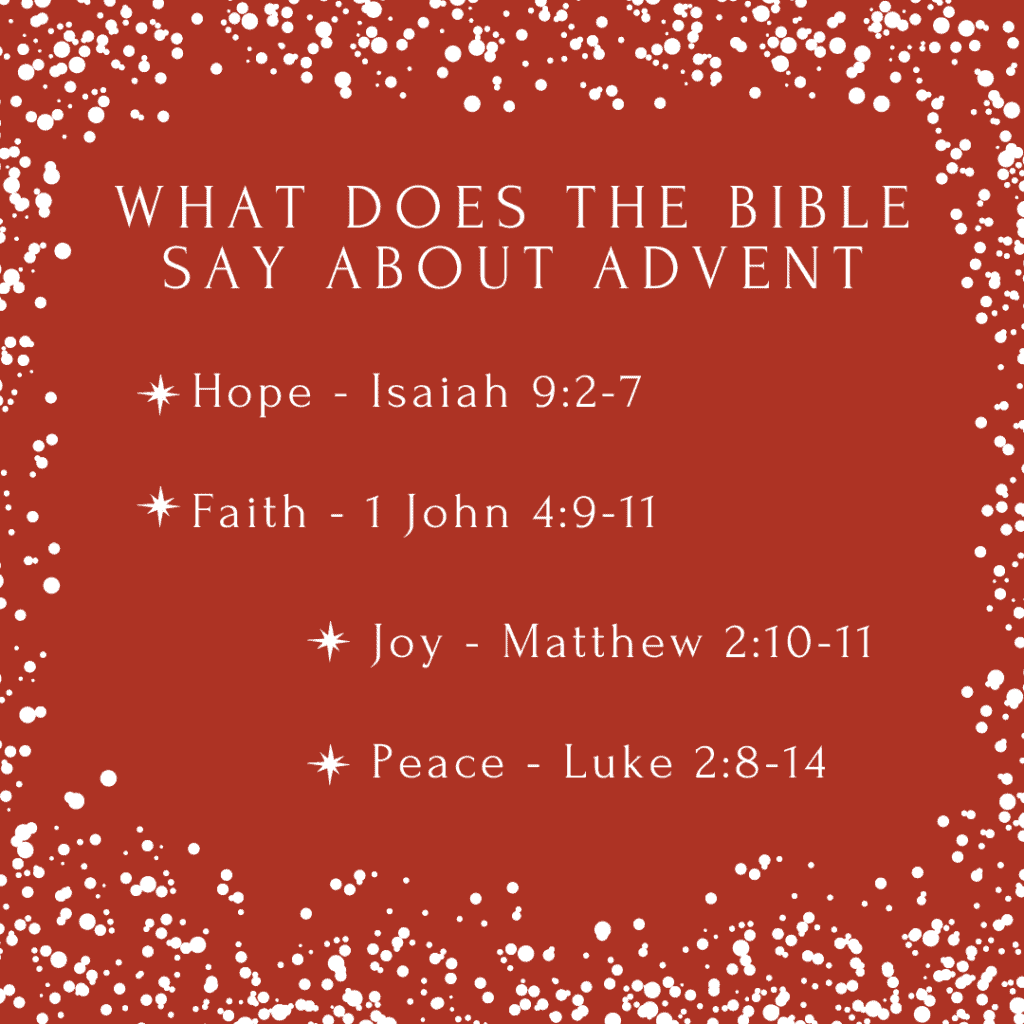Why is Advent important? Advent is a time of hope. When we show our children Advent’s profound truths, they receive a higher hope than anything this world can offer.
Why is Advent important? Advent is a time of hope. During Advent, pastors and church leaders can have a profound effect on those who have little or no hope. When we show families and children Advent’s profound truths, families receive a higher hope than anything this world can offer.
I know a lot of people say this, but it really is true – Christmas is my favorite time of year. I have wonderful memories of family and church celebrations. And I love the music and nostalgia of the season.
As wonderful as all that can be, Christmas is far more than what our cultural celebrations have made of it. Especially for Christians. When this time of year comes, we pay attention to what is at the center of it all. We may enjoy the carols and decorations, but we celebrate the Advent of Jesus Christ.
“We can, and should also, celebrate Christmas despite the ruins around us….I think of you as you now sit together with the children and with all the Advent decorations—as in earlier years you did with us. We must do all this, even more intensively because we do not know how much longer we have.”
Letter from Dietrich Bonhoeffer to his parents, November 29, 1943, written from Tegel prison camp.
The Importance of Advent
In November of 1943, German pastor Dietrich Bonhoeffer found himself in prison without any knowledge of when or if he might be released. With war raging around him there was no telling whether he might ever see his family again.
He would have to wait to see if the circumstances of the war turned in his favor. But in the meantime, he had something greater to hold onto. Despite his imprisonment, he believed there was good reason to celebrate Christmas, decorations, and all.
Advent teaches us how to do that as we celebrate the first coming of Jesus Christ born in a manger. Bonhoeffer wrote about the value of celebrating Christmas even while he was in prison with very little earthly hope. He helps us see how our immediate circumstances do not dictate whether we have good reason to wait for and hope for the next coming of Jesus Christ.
And so, it was with Bonhoeffer while in prison. God’s promises, not earthly circumstances, was the foundation of his hope. He didn’t wait for his release before he talked about celebrating Christmas, and he didn’t ask his family to wait for him to come home.
Meaning of Advent
The word, “advent”, simply means “coming”. In the context of the Christian faith, it represents our celebration of the first coming of Christ and our anticipation of his second coming. The birth of the Messiah was promised in the Old Testament and was anticipated by God’s people for a very long time.
When the angel announced the birth of Jesus to Joseph, Matthew says this happened to fulfill the promise in Isaiah, “Behold, the virgin shall conceive and bear a son, and they shall call his name Immanuel” (Matthew 1:23). A great exercise through Advent would be to collect several of these promises, talk about them together, and even memorize some of them.
How Long Does Advent Last?
Traditionally, Advent is celebrated during the four Sundays before Christmas, on Christmas Eve and Christmas Day. During those four Sundays, many churches and families will mark the days by lighting Advent candles or an Advent wreath.
Having a physical symbol of this anticipation can help keep our minds on what it means for Jesus to be born. Physical representations of these moments act as reminders to us all. This season is not just about what we want. It is about what we need from a Savior and what he did for us to save us from our sins.
When we wait it means what we hope for has not yet come. It has been promised, or we have reason to believe it is on its way, but it is not yet here. We anticipate it and we actively look for it, but we wait.
Advent’s Themes
During the four Sundays, it is common to celebrate four biblical themes: Hope, Faith, Joy, and Peace. Hope reminds us of the people of God who anticipated the coming of the Messiah. We stand with them as we wait for Christmas Day. We also wait for the next coming of Christ as King.

What Does the Bible Say about Advent?
Our hope is in the truth and in the power of God. Learning what the Bible says about Advent can help you and your family prepare for this upcoming season. Just as Christ came the first time, he is sure to come the second time. As a family, discuss passages of Scripture like Isaiah 9:2‐7.
Peace is a powerful theme at the birth of Jesus Christ. Not only do the angels tell Mary, the Wise Men, and the shepherds, “Do not be afraid!”, they announce the coming of peace with the birth of the baby boy. In Luke 2:8‐14, they proclaim “Glory to God in the highest, and on earth, peace among those with whom he is pleased!” (Luke 2:14).
Talking with our family about the love God showed at the birth of Christ gets at the very heart of who God is and all he has done for us. A wonderful passage to discuss is 1 John 4:9‐11. There, God shows His love to us by sending his Son into the world. And now, in response, we become people of love.
Then, the message of joy is like lighting a fire in a cold, dead fireplace. It is a gift of God to his people. We can enjoy God’s grace in every time of life. God’s joy is even in our darkness, as the hymn teaches us to sing about Jesus’s birth, “The weary world rejoices!” A place where the Bible mentions Advent is the joy of the Wise Men when they saw the star in Matthew 2:10‐11.
Prepare Your Heart
For Christians, the only way to have genuine hope in the face of earthly circumstances, is to put it in something utterly out of the reach of our surroundings. At Advent, we learn our hope belongs in the promise and character of God. He sent his Son. He is sending His Son again.
What do we see? Is our vision filled with all that is wrong and broken around us? Do we, without even thinking about it, put all the hope we have in the righting of those wrongs?
What if our hope is higher than any headline? What if we have a hope we can cling to even while the nations rage?
Advent reminds us to put our hope in God.
Having these basic tools and knowing what the Bible says about Advent can help give the Advent season purpose and shape and it can help focus us on the coming of Jesus Christ. May this Advent season be filled with the hope, peace, love, and joy of Christ!


















 0800 200 362
0800 200 362 support@family.org.nz
support@family.org.nz Rangiora, 7400, New Zealand
Rangiora, 7400, New Zealand